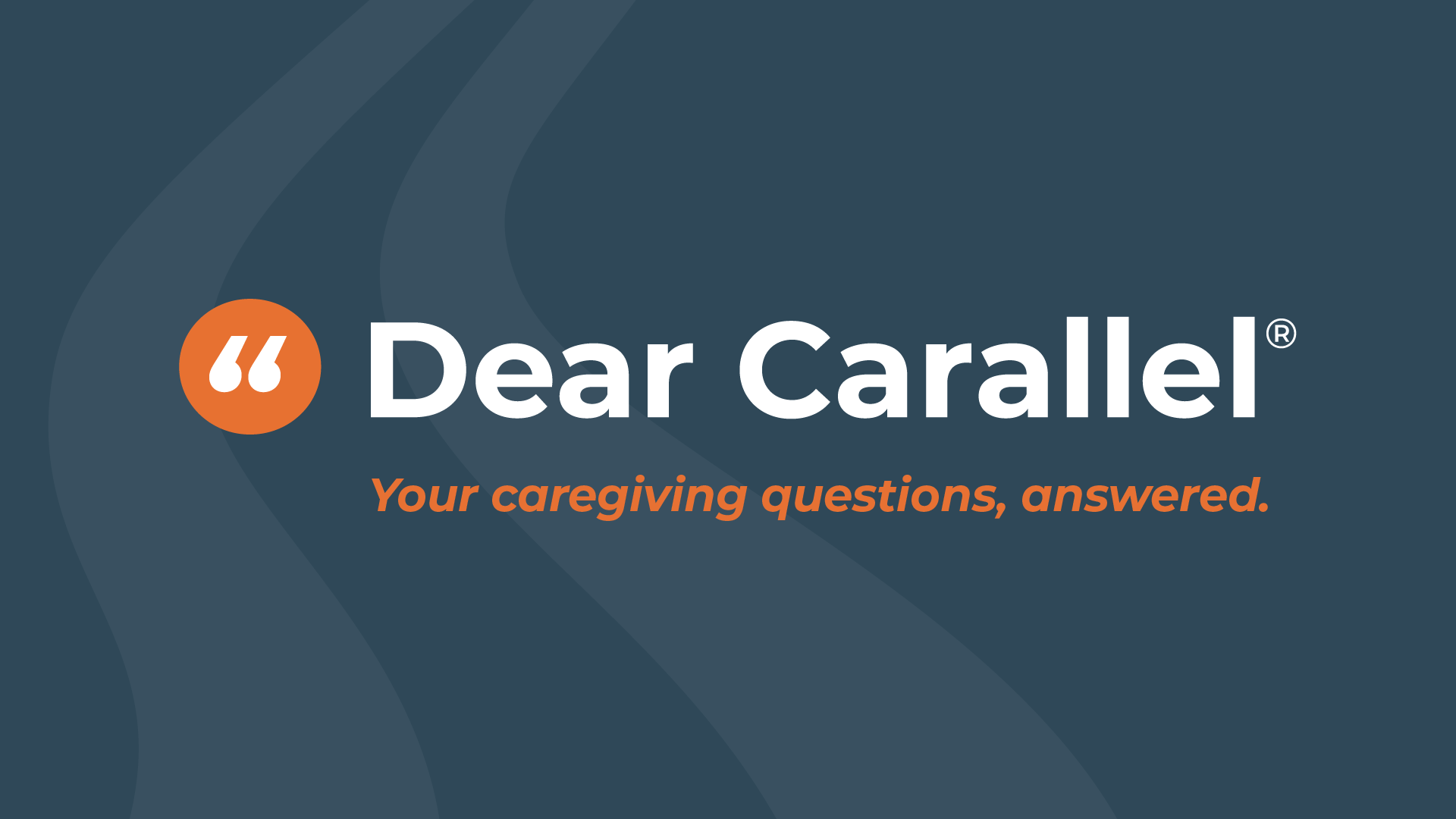Caregiver Question | 06/15/23
I became my wife’s caregiver in the blink of an eye. Now what?

DEAR CARALLEL: My wife Yvette had a scary fall a few weeks ago. She broke her left leg, left wrist, and suffered a mild concussion. It’s an understatement to say I’m thankful the outcome wasn’t worse because it easily could have been. Yet as she moves closer to leaving the rehab center the reality of what comes next is setting in.
One minute we were walking down the street chatting and the next Yvette was on the ground. Little did I know then that I had just become my wife’s caregiver in the blink of an eye. Now what?
How am I supposed to give her the care she needs at home alone? I thank you for any advice you can offer. — Kevin in Alpharetta, GA
DEAR KEVIN: That must’ve been so frightening for you and Yvette. I’m glad to hear that she is on the road to recovery and I’m very happy that you wrote in.
First thing’s first, I understand how the prospect of going home can feel overwhelming. It’s OK for you to feel that way and it’s important for you to know that you can do this. Because you can.
In my opinion, you’ve already taken a big first step: you’re identifying as Yvette’s caregiver. Now that you’ve done that, here are a handful of other ideas that could help get you started.
Find the Discharge Planner
In general, people in the hospital or a rehabilitation center are usually assigned a Discharge Planner. This person may also be known as a Case Manager, Social Worker, or some other title.
It’s their responsibility to make sure that when a patient leaves, they have services in place to ensure a safe and appropriate discharge. That could mean a wide range of things such as setting up transportation and home health, arranging for follow up appointments and having prescriptions for medications in place.
In order to advocate best for Yvette, find her Discharge Planner and communicate with them as soon as possible about any concerns and question you have.
Lastly and importantly, be as clear as you can be when speaking with them about what you see as barriers for you and Yvette at home–because the Discharge Planner won’t be able to create the best plan if they don’t have the complete picture.
Get your legal ducks in a row
This can be tedious but it’s always worth it. If you don’t have things like Power of Attorney, Health Care Proxy, and Authorized Representative forms on file with her health care providers and insurance, I recommend it.
Having these items in place will clear the way for you to speak with anyone about Yvette’s care or related items when you need to.
Additionally, once you get settled at home it would be a good idea to have a discussion about each of your wishes in the event that either of you aren’t able to make your own health related decisions. While those thankfully weren’t necessary in this unexpected episode, we never know when they will be.
Build a team and a network
The responsibility of caring for someone else is more than one person should have to carry on their own. As a first step here, I’d think about what your needs will be while you’re caring for Yvette.
Transportation? In-home care? Physical therapy? Occupational therapy? Help around the house? Adaptive equipment? Coverage for you so that you can have breaks?
Make a running list of your needs. Once you have the list you can get started on filling the gaps.
- Ask for help from friends and family (be as specific as possible)
- Check with Yvette’s insurance company to see what benefits they offer for things like transportation, in-home care, or anything else that could help fill a gap during this time of transition.
- Visit or contact your local Area Agency on Aging to discuss your situation and ask for recommendations.
Keep being her advocate
I have no doubt that you’re already advocating as best you can for your wife. That being said, there are simple tactics we can employ to make ourselves the best advocates we can be.
- Take notes–write down your observations and questions.
- When speaking with health care providers, pharmacists, or insurance–remember there are no silly questions. If you need clarity, ask for it.
- Ask for, and accept, help. This is at the heart of advocating for the ones we love.
Give yourself grace
There is no such thing as a perfect caregiver.
You have been doing, and will continue to do, the best you can for your wife. There will undoubtedly be ups and downs in this journey and remembering, believing, that you’re doing your best can be helpful insulation against the ‘downs’.
✨
Like I said earlier Kevin, you can do this. Hopefully these ideas give you a sense of where to start. I’ll be thinking of you and Yvette.
–Jennifer, Carallel Care Advocate
The latest from Carallel

Caregiver Journey Webinar
A Caregiver Conversation by Carallel: Helping Children Adjust When a Loved One Moves In
We dive into the practical realities of moving the person you're caring for into your home - and offer simple tips for helping children adjust....

Blog
The ‘Invisible Second Patient’: Understanding the Role of Dementia Caregivers
There are 16 million Americans caring for a loved one with Alzheimer’s disease or a related dementia today. Despite the group’s sheer size, they...
